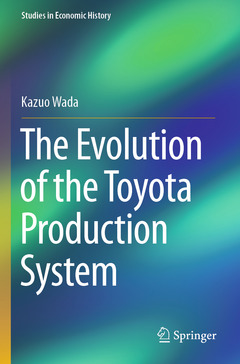The Evolution of the Toyota Production System, 1st ed. 2020 Studies in Economic History Series

This book utilizes historical evidence to describe the development of the Toyota Production System (TPS). The development of TPS typifies the transformation of production control in interchangeable industries in the twentieth century. Much of the extensive literature available on TPS has been geared toward describing TPS from a number of different perspectives. Many researchers consider TPS distinct from American mass-production systems. Although TPS (and, more generally, the production control systems in the Japanese assembly industry) has differentiated itself from similar US production systems, the evolution of TPS is largely attributable to attempts to learn from, imitate, and modify pre-World War II US production methods. Through these efforts, TPS has achieved levels of efficiency in Japan comparable to those of US production systems. Additionally, a reliance on Information and Communication Technology (ICT) in relation to production control has facilitated the development ofTPS. The literature on TPS, however, has largely ignored the vital relationship between ICT and production control due to an inordinate focus on ?Kanban.? Kanban translates to ?signboard? in Japanese but is used to refer to an organic linkage between work in preceding and subsequent production processes. This book sheds light on the development of a fully digitalized Bill of Materials (BOM) at Toyota, behind its Kanban and production control.
.
Date de parution : 06-2021
Ouvrage de 166 p.
15.5x23.5 cm
Date de parution : 06-2020
Ouvrage de 166 p.
15.5x23.5 cm
Disponible chez l'éditeur (délai d'approvisionnement : 15 jours).
Prix indicatif 126,59 €
Ajouter au panier


